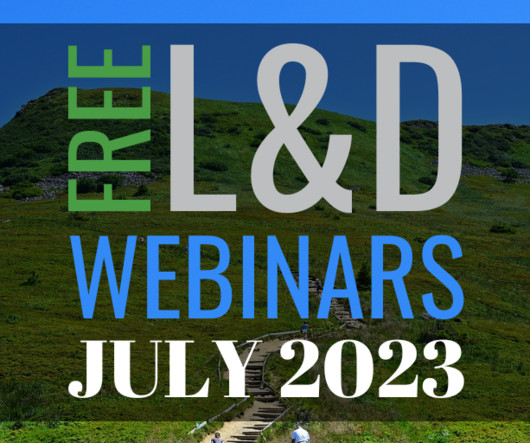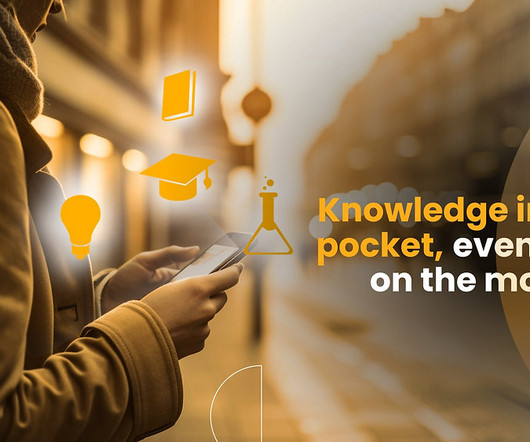Learning science again
Clark Quinn
SEPTEMBER 30, 2020
Our brains are bad at remembering rote, abstract, arbitrary, and voluminous information.) We should be facilitating informal learning as well. All of this, done right, depends on understanding learning science, again. Seriously, everything that L&D does largely boils down to knowing how our brains work.




















































Let's personalize your content